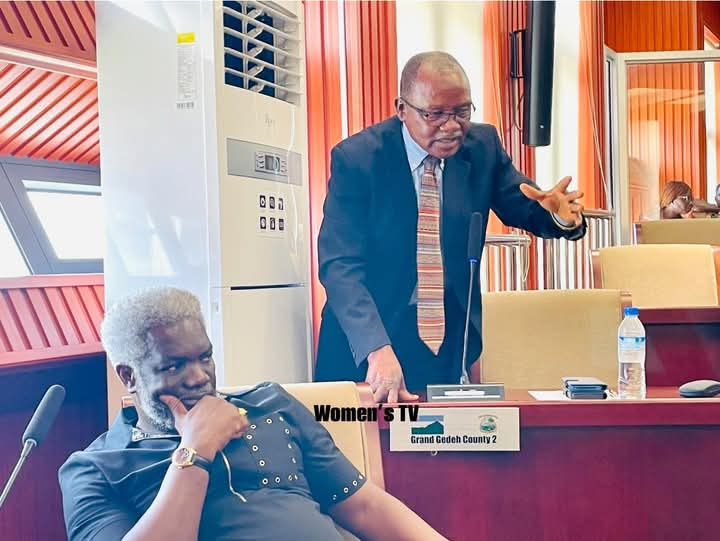In a recent statement, former rebel general Thomas Yaya Nimely has suggested that the late Senator Prince Yormie Johnson’s death may be linked to his fears regarding the establishment of a War and Economic Crimes Court (WECC) in Liberia. Senator Johnson, who once led the Independent National Patriotic Front of Liberia (INPFL) and was a key figure during the country’s civil war, had expressed continuous concerns about the court, which the Liberian government, led by President Joseph Nyuma Boakai, has been moving toward establishing. Johnson’s death has raised questions about whether his reportedly conflicted feelings regarding the court and its implications for his own actions during the war played a role.
During a Senate plenary session dedicated to paying tribute to Senator Johnson, Nimely detailed the pressures Johnson had faced surrounding the potential establishment of the WECC, citing conversations they had about the matter. Nimely recounted how Johnson, feeling betrayed by the Unity Party government after a resolution for the court was signed, expressed deep unease over public calls to hold individuals accountable for wartime atrocities. He highlighted a moment where Johnston, visibly shaken, signed the resolution under pressure, indicating that the repercussions of such a court troubled him profoundly.
Nimely described Johnson’s struggles with guilt and forgiveness, suggesting that the senator had been seeking redemption in his later years through community service and opening a church. He portrayed Johnson positively, arguing that the senator’s political history should be viewed with understanding rather than condemnation. Nimely indicated that Johnson believed in his responsibility to rebuild relationships and foster unity in a country that had been torn apart by conflict, remarking on the senator’s support for various presidential candidates since the war, which had proven successful.
The interplay of political maneuvering and personal redemption is stressed by Nimely when discussing Johnson’s engagements with both former President Ellen Johnson Sirleaf and former President George M. Weah, pointing out that Johnson had sought and received “time” to make amends for his past as part of an implicit deal for political support. According to Nimely, Johnson was willing to negotiate his political influence in exchange for forgiveness — a strategy that allowed him to engage in reconciliation efforts throughout his political career.
Despite his past, Nimely believes that Johnson had paid his “dues” after the civil war by actively working to contribute positively to Liberia’s future through education initiatives and political support. The former general criticized the lack of forgiveness shown to Johnson by others, highlighting the possibility of redemption and supporting his argument with biblical references to forgiveness. Nimely’s statements reflect the complexities of Liberia’s recovery from civil war, marked by difficult discussions surrounding accountability, legacy, and the contributors to lasting peace within the nation.
Ultimately, the legacy of Senator Johnson and the potential establishment of the WECC represent unresolved tensions within Liberia as the country grapples with its history of violence and the quest for justice. Nimely’s reflections during the Senate tribute highlight the deep-seated fears and emotions surrounding these topics, suggesting that the implications of the WECC and the narratives of individuals like Johnson will continue to shape Liberia’s national discourse moving forward. The suggestion that Johnson’s fears contributed to his demise underscores the challenge of reconciling with a turbulent past while forging a path toward peace and accountability.














